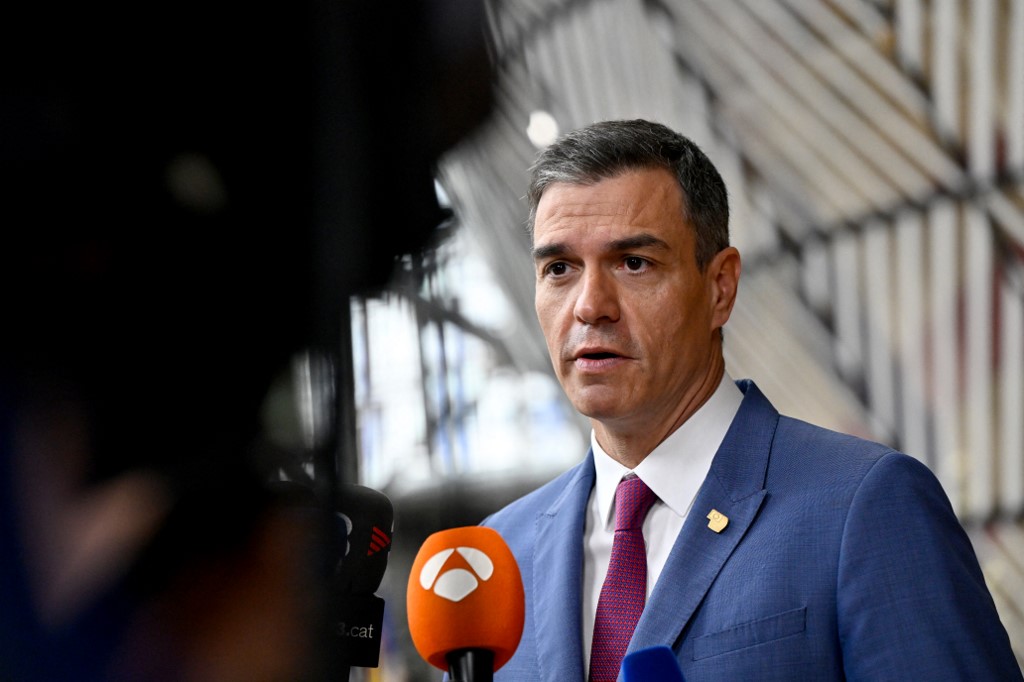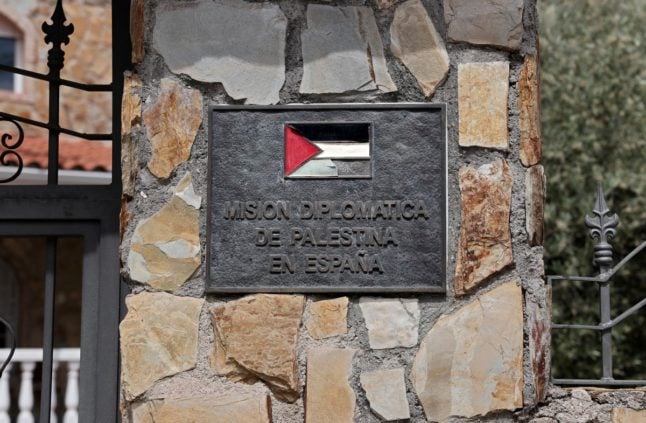It has long been assumed that the Spanish right would win the next general election.
The perceived political wisdom was that the leftist coalition government, led by Prime Minister’s Pedro Sánchez’s Socialists (PSOE), would be defeated by events beyond its control, controversial laws pushed by its junior coalition partner Podemos and voter fatigue.
After all, just months after coming into government, the Covid-19 pandemic began. Then war in Ukraine sparked an inflationary cost of living crisis just as the country was finally emerging from the coronavirus crisis.
Political commentators in Spain thought Sánchez would be remembered as the pandemic Prime Minister, and that his left-wing coalition would be a one-term government.
Therefore, when the Spanish right made symbolic gains in late-May’s local and regional elections, it seemed to confirm what many (and the polls) had long thought: the general election, something everyone expected at the end of 2023, would be won by the centre-right Partido Popular (PP).
The main political intrigue was whether the PP would win an absolute majority or be forced to rely on far-right Vox to govern. Writing Sánchez off, Spain’s political pundits had looked forward to a relaxing summer preparing for the election later in the year.
So when Sánchez called a snap election for July 23rd, once the country had gotten over the shock (summer elections are rare in Spain) many presumed he was simply getting the inevitable defeat over with sooner rather than later.
But since the pre-campaign (as it’s called in Spain) began, a combination of factors have led to a narrowing in the polls.
Now Sánchez and PSOE don’t seem to be in such a politically precarious position. In fact, many are now quietly wondering: is Spain’s right wing definitely going to win the general election?
Polls narrowing
Recent polling suggests the probable answer is yes – the PP will win – but it’ll be close.
Crucially, there are very few if any pollsters predicting a PP absolute majority, so if the Spanish right is to win it’ll have to be in coalition with the far-right Vox.
One outlying poll, released on July 5th by CIS (Spain’s official polling company), shows the PP slightly edging the vote over PSOE (31.4 percent to 31.2 percent) but also predicts left-wing platform Sumar will pick up between 43 and 50 seats (16.4 percent of the vote) at the expense of Vox (down to 10.6 percent for between 21 and 29 deputies) which would likely give the Spanish left the chance to govern again.
It should be stated that this is just one poll, and most others still maintain a PP lead, albeit a shrinking one. The 40dB survey for national newspaper El País and radio station Cadena SER shows a loss of over 2 percent for the PP vote share (31 percent), and an increase of 1.3 percent for the PSOE (29 percent).
ABC polling puts PP very close to a PP absolute majority, and despite the discrepancies between companies all polling data shows PSOE recovering the gap to varying degrees and there is still two and a half weeks of campaigning to go.

PP-Vox pacts
One factor that could explain this polling dip for the Spanish right is the ongoing (and very public) negotiations between PP and Vox at the regional and local level, notably in the regional executives of Extremadura and Murcia.
Put simply, junior coalition partner Unidas Podemos’ electoral collapse and absorption by Sumar meant that the Spanish left got its internal infighting over with before the right did. Now, as the general election campaign really heats up, PP leader Feijóo is bogged down with questions about (and connections to) the far-right and whether he will enter a coalition at the national level.
READ ALSO: Far right’s gender violence denial tarnishes PP’s election bid in Spain
For many in Spain, particularly those with memories of the dictatorship, this courting of the far-right has likely toxified the PP brand and will make some think twice about enabling a far-right government. This is especially true when much of the PP’s attacks on Sánchez and PSOE are attacks on his coalition partners, and the extremist rhetoric and behaviour of Vox in local and regional governments since being elected won’t help either.
READ ALSO:
- VOX: 10 things you need to know about Spain’s far-right party
- What a Vox government could mean for foreigners in Spain
Leaders on the campaign
Sánchez
Sánchez seems at home on the campaign. Critics say he is style over substance, but when gearing up for an election this works in his favour and the Prime Minister is a natural on the road, going from TV talkshow to public event, holding campaign rallies, shaking hands, kissing babies. His slick ‘el guapo‘ (the handsome one) brand, his strong public speaking skills, and steadfast defence of his government’s record have all, especially when compared with the rather awkward Feijóo, have likely played a role in PSOE’s poll recovery.
Feijóo
PP leader Alberto Núñez Feijóo, on other hand, seems stiff and hasn’t made nearly half as many TV appearances as Sánchez. The gaffe-prone Galician, who has a habit of contradicting himself, particularly when it comes to electoral pacts with Vox, has generally seemed timid on the campaign so far. He is an average public speaker and lacks the charisma or personality to give momentum to the PP campaign, but with his long held poll leads perhaps he feels he doesn’t have to.
Feijóo has also seemed reticent to debate Sánchez, something many expect Sánchez to win convincingly.
‘It’s the economy, stupid’
In the words of Sánchez: ‘la economía va como una moto‘, which literally means the economy is going like a motorbike but can be understood as something along the lines of ‘the economy is on a roll’ or ‘running smoothly’.
And according to the data true – the Spanish economy has repeatedly outperformed expectations, something Sánchez is now beginning to hammer home to the electorate. Despite a pandemic and cost of living crisis, Spain has one of the lowest levels of inflation in Europe and tourism and employment figures are hitting record levels.
A lot of the campaign so far has been anchored on cultural issues (separatism, okupas, LGBT, gender violence, to name just a few) but as a famous American politician strategist once put it: ‘it’s the economy, stupid’, implying that ultimately voters most often vote based on the state of the economy.
Getting positive economic updates during the campaign can’t hurt PSOE’s chances, nor can its record despite difficult conditions.
Congressional arithmetic – who will win?
On balance it seems the most likely outcome is still that the Spanish right will win the election.
A PP absolute majority seems unlikely, so the most plausible outcome is a PP-Vox coalition of some sort. If the complexity of negotiations at the regional level are anything to go by, failure to form a coalition quickly could lead to calls from the left for repeat elections, as there were in 2019.
However, the polls are narrowing, and there is a sense in Spanish political circles that the left (Sánchez and PSOE in particular but also Sumar) is closing the gap and growing in confidence.
Protracted negotiations between PP and Vox at the regional level will further damage the PP brand, as will Vox’s more incendiary rhetoric, and on a personal level Sánchez seems set to easily outperform Feijóo.
If polls continue in the direction they have been going in recent weeks, the Spanish left may well have a chance to form a coalition government with some configuration of PSOE, Sumar and regional parties. Besides Vox, it is unlikely PP will find another coalition partner, so the centre-right party could plausibly win the most votes and still not have the Congressional numbers to form a government.
With two and a half weeks to go, and the most intense period of the campaign still yet to come, the assumption that the Spanish right will win a landslide seems a lot less certain that it was a month ago.



 Please whitelist us to continue reading.
Please whitelist us to continue reading.
Member comments